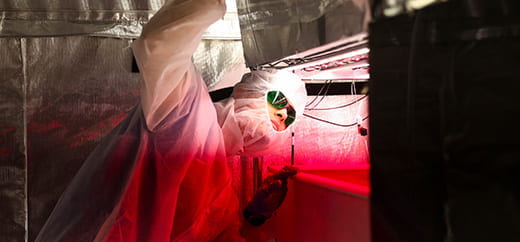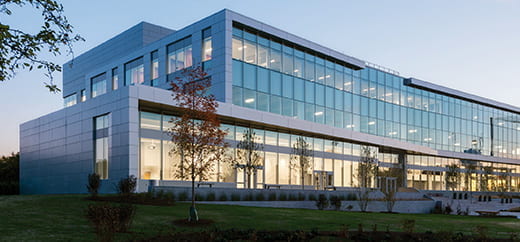Laboratories

BATL (Biopharmaceutical Analysis & Training Lab)
This APEC lab trains graduate students and regulatory professionals in using liquid chromatography and mass spectrometry to ensure the safety, quality, and effectiveness of biotherapeutics. This center, the only one in the Western Hemisphere, fosters the integration with industry of the Asia-Pacific Economic Corporation’s 21 member countries. The center provides education and training for pharmaceutical industry regulators regarding the structure, function, and production of biotherapeutics. To ensure the safety and efficacy of these medicines, the center helps ensure compliance with exacting manufacturing practices in accordance with precisely defined specifications.

Battery Sustainability Lab
Batteries, which are crucial for storing sustainable energy, face a challenge in that they lack sustainable end-of-life solutions. To address this, the Battery Sustainability Lab conducts fundamental research in battery safety, reliability, and lifetime assessment. Equipped with advanced battery analyzers, the lab focuses on both electronics and EV batteries and modules under extreme mechanical and thermal conditions ranging from -70 to 150 Celsius. Additionally, the lab develops multi-scale characterization approaches with the help of state-of-the-art AI techniques.

DeLTA Lab
The DeLTA lab focuses on understanding complex emergent phenomena in quantum materials and achieving new light-induced long-lived quantum states. Our laser lab deploys an 80 W Light Conversion Carbide and Orpheus-F OPA, able to generate strong sub-100 fs pulses in the 650-900 nm and 1200-2500 nm wavelength range, and a Quantum Design OptiCOOL 2K 7T optical cryostat to perform time-resolved non-linear spectroscopy measurements under extreme environments. Our lab is uniquely integrated with the EQUAL lab to expand its characterization capabilities to the time domain and reveal the dynamics of electrons in quantum materials. We complement our in-house capabilities with resonant inelastic x-ray experiments (RIXS) and angle-resolved photoemission spectroscopy (ARPES) at free electron lasers and synchrotron facilities.

EQUAL (Experiential Quantum Advancement Lab)
EQUAL (The Experiential Quantum Advancement Lab) is a partnership with the Massachusetts Technology Collaborative to advance quantum technologies through innovations in materials, devices and sensing applications.
Experiential Quantum Advancement Laboratories on the ICBM Campus focus on solving societal problems related to health, security, and sustainability. The EQUAL project will transform sensing technologies in these three domains and markets by tapping into the power of quantum systems.

Geospatial Research Group
The Geospatial Lab performs research in a variety of remote sensing topics, from the development of novel machine-learned models, to multimodal data fusion, and beyond. Through the utilization of high-resolution multispectral remote-sensed imagery, a multimodal space-based vehicle detection capability has been developed. Through middle fusion, detection capabilities are enhanced through data sharing. The Lab is actively developing multimodal ML-enhanced UAS systems, capable of executing ML models in real-time. The object detection model will utilize NIR hyperspectral sensing, LWIR imagery, and standard RGB imagery in a multimodal YOLO-based system, operational on a COTS UAS. We have developed remote sensing pipelines to detect large-scale perturbations to critical infrastructure by utilization of synthetic aperture radar imaging.

Materials & Devices
The Materials and Device (M&D) Lab at Kostas Research Institute (KRI) is a multidisciplinary lab with a wide range of materials and device experts focusing on the development of next-generation technologies in the areas of magnetism (magnetic materials and magnetic-based devices) and energy storage materials. The M&D Lab nurtures a collaborative environment whereby Northeastern University faculty and KRI LLC personnel work together with both the commercial sector and the Department of Defense (DoD) contractors and system integrators to promote the transfer of innovative research to the end users.
The M&D laboratory is fully equipped with state-of-the-art and one-of-a-kind equipment for the development and precise characterization of high-performance advanced materials (including soft and hard/permanent magnets, magnetic alloys and self-biased ferrites in powder, thin and bulk film and ceramics forms, energy storage materials) as well as magnetic-based devices.

Thermal Lab
ICBM is launching an open-access RF & Dielectric Thermal Lab at KRI on Northeastern University’s Burlington campus. This lab will eventually bring thermal characterization and simulation of RF and dielectric thermal management materials, systems, and platforms to the next level.
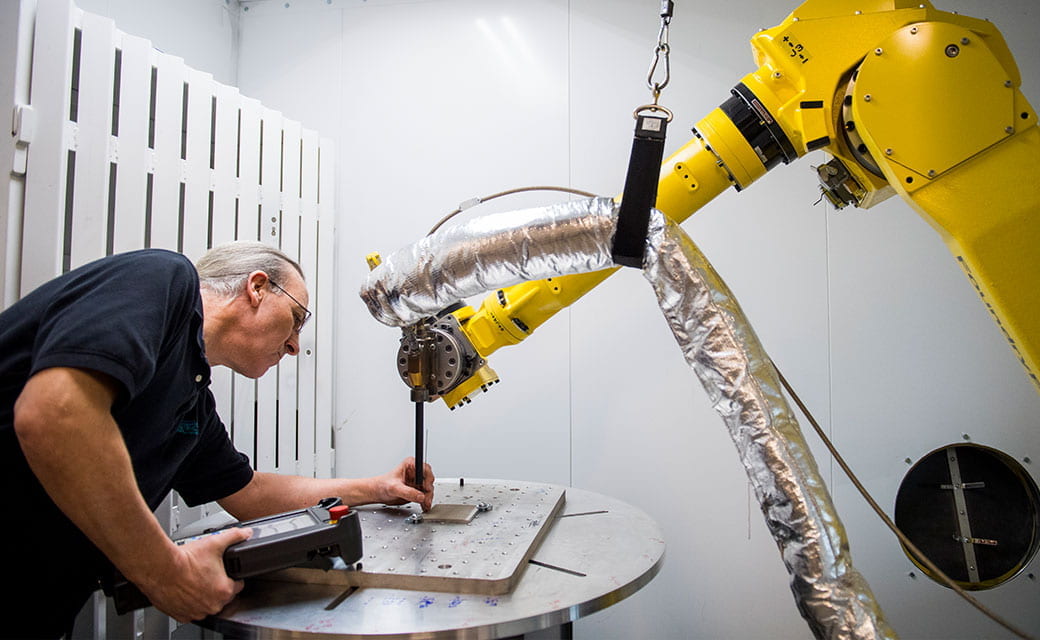
Cold Spray Laboratory
Cold spray technology is an additive manufacturing process that welds metal powders to surfaces at high velocity. The technology is used to strengthen and repair military vehicles and equipment, from periscopes and airplane panels to next-generation armor—and promises to revolutionize commercial manufacturing.
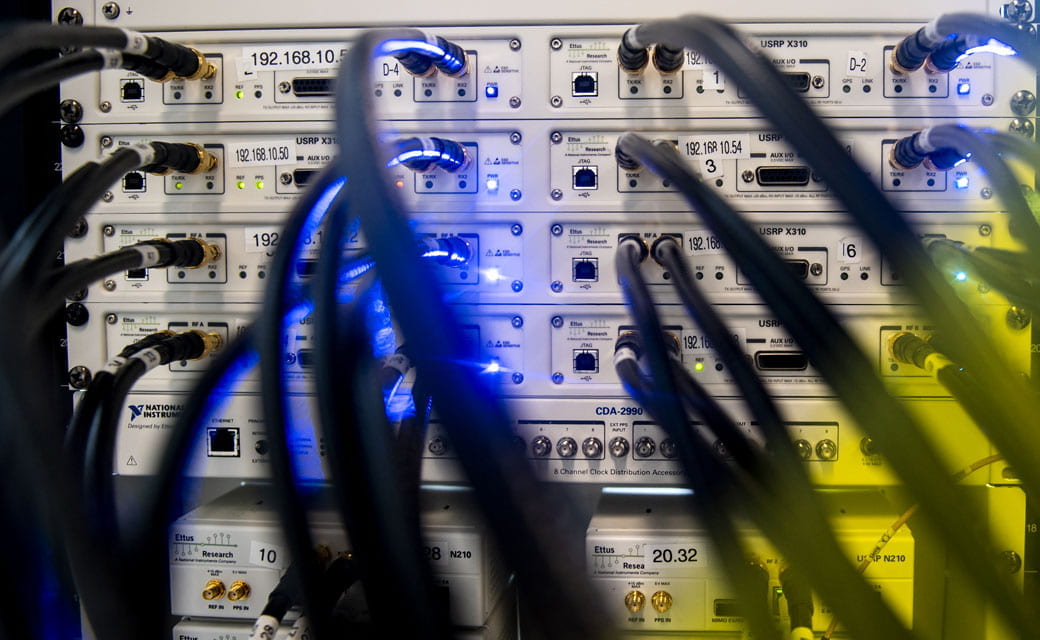
Colosseum RF Channel Emulator
Notheastern is home to the Colosseum, the world’s largest radiofrequency channel emulator.
Developed by the Defense Advanced Research Projects Agency, the Colosseum will enable the building and testing of intelligent, autonomous, collaborative, wireless technologies for military and commercial use. This “electronic arena” can mimic, in real time, tens of thousands of RF channel interactions among hundreds of wireless devices within a square kilometer. Through AI, radios that weren’t designed to work together can now learn to do so by optimizing the limited capacity of the electromagnetic RF spectrum.
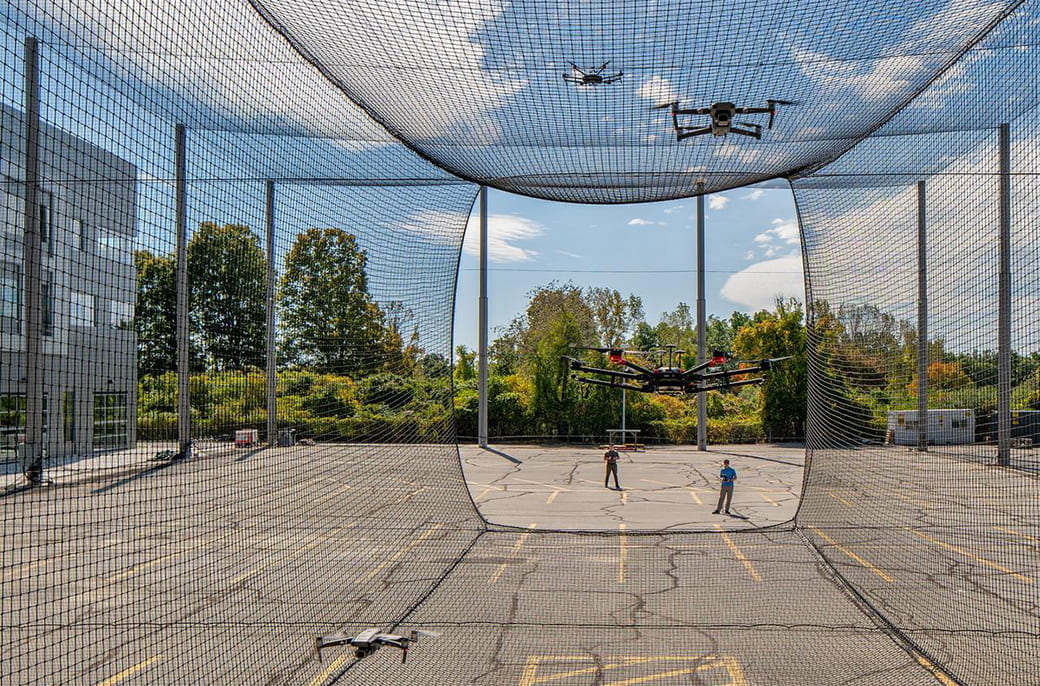
ECUAS (Expeditionary Cyber and Unmanned Aircraft Systems R&D Facility)
Within this unique indoor and outdoor facility, researchers focus on surveillance, cybersecurity, and disaster response. They develop and test unmanned, autonomous aerial systems; ground technologies; antennas; and cyber, radio, network, navigation, and communications equipment. An anechoic chamber/Faraday cage connects seamlessly to a 150’x200’x60’ outdoor, netted enclosure suitable for GPS testing.
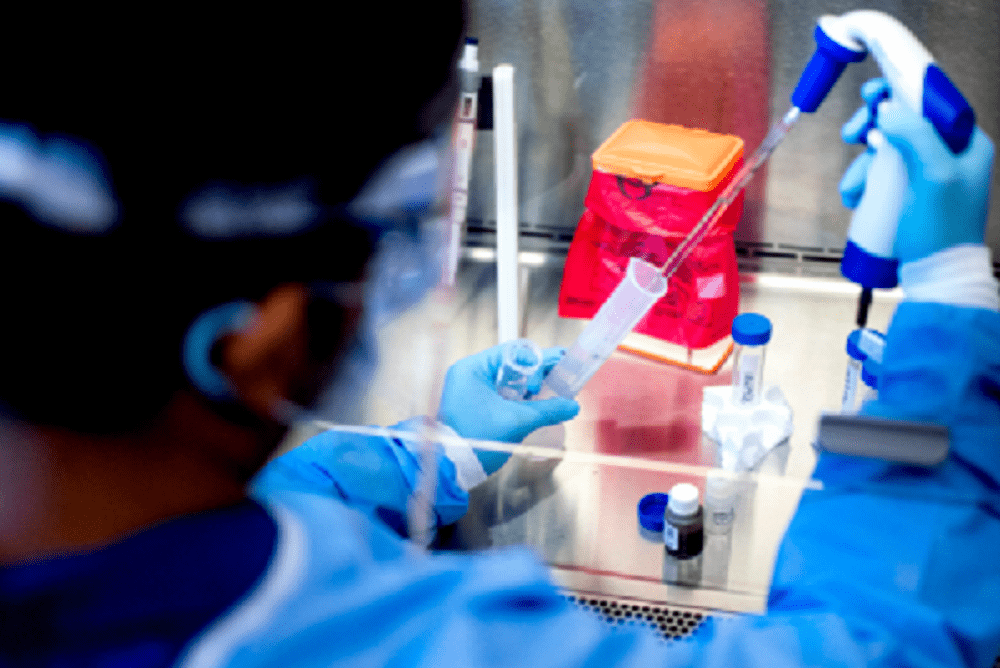
LSTC (Life Sciences Testing Center)
The Life Sciences Testing Center is both a CLIA- and CAP-accredited clinical laboratory that focuses on technology, innovation, and partnership at the intersection of workforce development, entrepreneurship and use-inspired research. During the COVID-19 pandemic, this lab was responsible for testing on the NU campus and communities. Since that time it has transitioned its testing capacity.
The research component of this laboratory examines pathogen detection such as that found during wastewater monitoring, as well as bioassay development and clinical study support. The training programs focus on med tech and clinical research scientist programs.

STReSS Lab (Structural Testing of Resilient and Sustainable Systems)
This specialized lab allows for three primary types of research including; the development of new resilient and sustainable structural systems; the investigation of new construction materials for the built environment; and the development of innovative sensing technologies and strategies for assessing the integrity of the built environment.
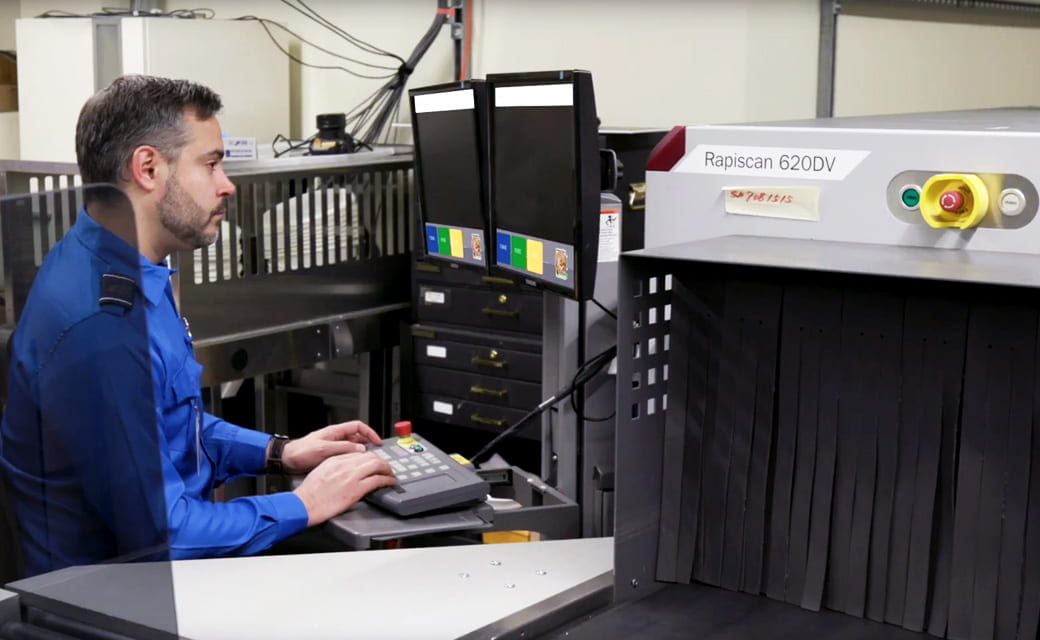
SENTRY (Soft Target Engineering to Neutralize the Threat Reality)
The SENTRY Lab is designed to look and feel like a TSA Security Checkpoint at any American airport. Created to detect malicious and nefarious behavior and items, the SENTRY system is a high-tech checkpoint scenario that uses video data to track passengers and their items through security checkpoints.
SENTRY’s Correlating Luggage and Specific Passengers (CLASP) Project has developed software capable of processing data from CCTV video cameras to track passengers and their items through the airport security checkpoint in real-time. This software can automatically identify when passengers enter and exit the checkpoint, what items belong to which people, and unusual behaviors, such as theft or items left at the checkpoint. Automated Tracking Algorithms (ATAs) are trained to use video data to track passengers and their items through the checkpoint. The goal of CLASP is to assist the TSA in improving the passenger experience through reduced wait times, enabling more efficient screening processes, minimizing theft and keeping track of passenger items, as well as improving detection performance in airports. CLASP is funded by the Department of Homeland Security (DHS) Science and Technology Directorate’s (S&T) Screening at Speed program through the DHS Office of University Programs.
Learn more about us
Overview
Northeastern’s Innovation Campus accelerates technology and innovation through a uniquely powerful, customizable partnership model.
Leadership and faculty
Experts from industry, government, and academia join with faculty and students to translate discoveries into revolutionary technologies, materials, and systems.
Our facilities
At this 14-acre hub of research breakthroughs and entrepreneurship, companies, startups, federal agencies, and universities convene.
